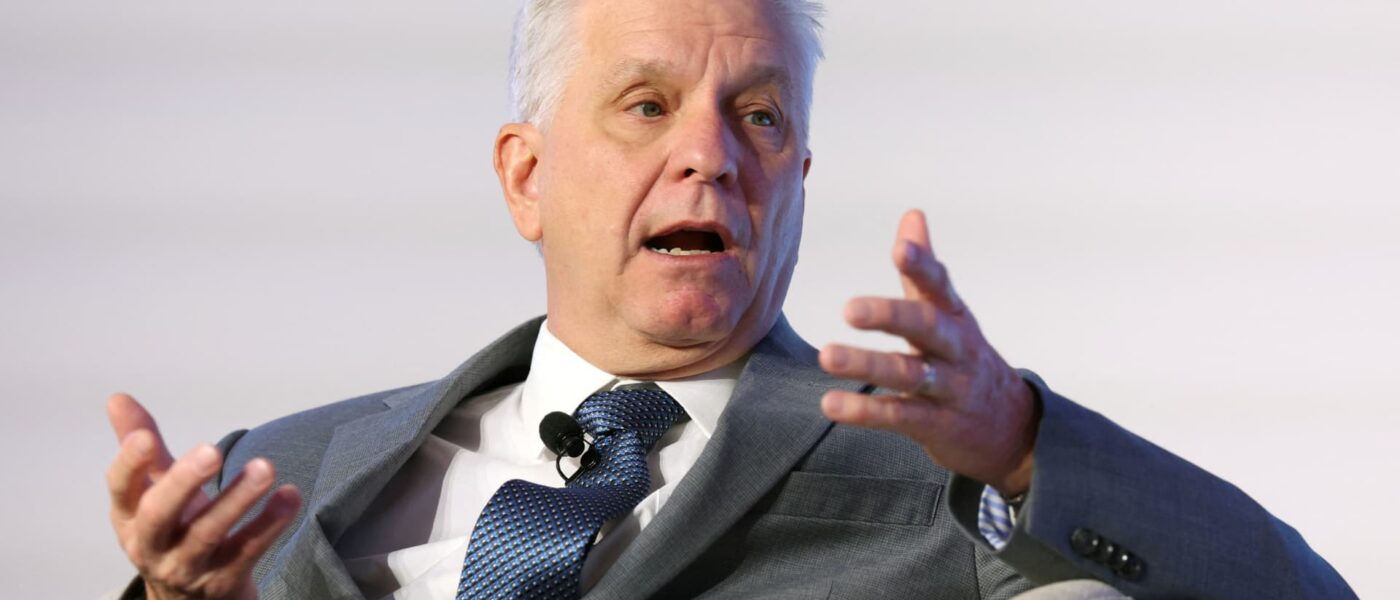Fed Governor Waller says central bank could cut rates as early as July
Federal Reserve Governor Christopher Waller said Friday that he doesn’t expect tariffs to boost inflation significantly so policymakers should be looking to lower interest rates as early as next month.
In a CNBC interview, the central banker said he and his colleagues should move slowly but start to ease as inflation is not posing a major economic threat, which he expects to continue.
“I think we’re in the position that we could do this as early as July,” Waller said during a “Squawk Box” interview with CNBC’s Steve Liesman. “That would be my view, whether the committee would go along with it or not.”
The comments come two days after the Federal Open Market Committee voted to keep its key interest rate steady, the fourth straight hold following the last cut in December.
President Donald Trump, who nominated Waller as a governor during his first term in office, has been hectoring the Fed to lower interest rates to reduce borrowing costs on the $36 trillion national debt.
In his remarks, Waller said he thinks the Fed should cut to avoid a potential slowdown in the labor market.
“If you’re starting to worry about the downside risk [to the] labor market, move now, don’t wait,” he said. “Why do we want to wait until we actually see a crash before we start cutting rates? So I’m all in favor of saying maybe we should start thinking about cutting the policy rate at the next meeting, because we don’t want to wait till the job market tanks before we start cutting the policy rate.”
Stock market futures saw gains after Waller’s remarks.
Whether Waller will be able to marshal much support for his position is unclear.
The FOMC, Waller included, voted unanimously to hold at this week’s meeting, keeping the benchmark federal funds rate locked in a target range of 4.25%-4.5%.
Daly says wait until the fall
San Francisco Fed President Mary Daly, in a CNBC interview later in the day, said she would be more comfortable with waiting until there’s more clarity on the impact of tariffs.
“I think we want to be thoughtful enough to collect the information, and we do have these three scenarios that could unfold. So I’m for me, I look more to the fall, and by then we’ll have quite a bit more information,” she said during a “Closing Bell” interview. “
“Businesses are telling me that’s what they’re going to look to for some resolution to some of the uncertainty,” added Daly, who does not vote this year on the FOMC. “So I think unless we saw a faltering in the labor market that was meaningful, and we thought it would be persistent, then I would say the fall looks more appropriate to me.”

According to the “dot plot” of individual officials’ expectations for interest rates this year, seven of the 19 meeting participants said they see rates holding steady this year, two saw just one cut likely, while the remaining 10 expect two or three reductions. The dispersion reflected a sense of uncertainty around policymakers about where rates should head, though the median outlook pointed to a total…





